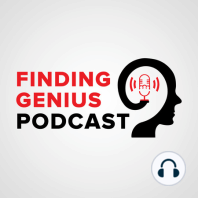41 min listen

Biological Beginnings – Luis P. Villarreal, Professor Emeritus, Department of Molecular Biology and Biochemistry, University of California, Irvine – T…
Biological Beginnings – Luis P. Villarreal, Professor Emeritus, Department of Molecular Biology and Biochemistry, University of California, Irvine – T…
ratings:
Length:
58 minutes
Released:
Mar 19, 2019
Format:
Podcast episode
Description
Luis P. Villarreal, Professor Emeritus, Department of Molecular Biology and Biochemistry, School of Biological Sciences at the University of California, Irvine, discusses his thoughts on viruses, life, and the changes that motivate evolution. Is it possible to be passionate about viruses? The answer is yes. As a scientist who is constantly experimenting, with an unquenchable thirst for knowledge, Luis Villarreal is definitely passionate about understanding viruses, indeed, especially with regard to viruses that linger either in the genomes or epigenomes of their host. For over 20 years, Villarreal has centralized his study on the overall role of virus evolution on life. And Villarreal states that viruses have had a significant and profound influence on the origin and evolution of life. Villarreal talks about his early years in science and the classes and information that truly sparked his desire to learn more, and how it organically led him to his life’s work. He details his study of negative-strand RNA viruses, viruses that resemble rabies and ebola—highly pathogenic. He recounts his observation of regulatory RNA that had dramatic consequences, which was the beginning of his true curiosity about viruses. He delves into his study of rearrangements of the genome by various types of retroviruses. He describes how retroviruses actually work together to create the placental network. He questions why this would happen, and surmises that in order for a mother or host to create life, they must take in a foreign biological entity, the embryo, and suppress its natural immune rejection, feed it, and host it for its lifespan, which requires a significant amount of change. Villarreal states that the virus footprint is literally all over all of these functions. The biology expert provides an overview of cellular DNA and the many jobs that DNA can fulfill. He explains how RNA and DNA react with each other and outlines their complicated network, although he states that there is much work to be done still to understand the complexity. He discusses his thoughts on human evolution and recounts stories that relate, such as endogenization of the koalas in Australia. He explains that a particular virus that was within these koalas was becoming part of them, and thus their ability to deal with the virus in their immune systems was being changed in real time. He compares this example to human development over time and discusses theories about viruses as they relate to humans, discussing the details of modification as it pertains to viruses and survival. His discussion of viruses and biology continues as he summarizes his thoughts on the human species and the many elements that relate to evolution and brain function, etc. On a lighter note, Villarreal muses about some Hollywood versions of viral mutations and provides his thoughts on Hollywood’s interpretation of real science turned into fiction for the movies we enjoy. He goes on to explain the astronomic scale of viruses in our environment, discussing the ocean extensively, and the microbiome.
Released:
Mar 19, 2019
Format:
Podcast episode
Titles in the series (100)
Purse.io – Buy Amazon Products At a 5-33% Discount Using Bitcoin: Purse.io allows you to buy any Amazon product at 5 to 33% discount using BITCOIN. Purse does this by leveraging unused Amazon gift card balances, allowing gift card holders to free… by Finding Genius Podcast